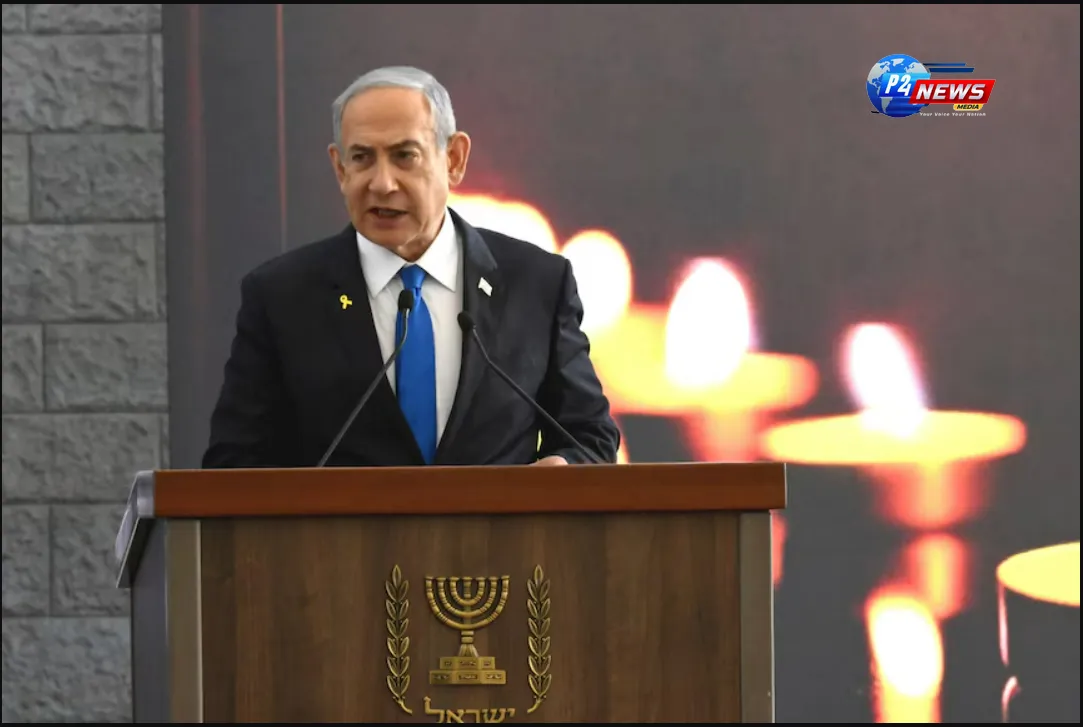Israel's Prime Minister Benjamin Netanyahu has connected a firebombing incident at a Melbourne synagogue to Australia's recent UN vote. In response, Cabinet Minister Murray Watt expressed his respectful disagreement with Netanyahu's assertion.
Israel's Prime Minister Benjamin Netanyahu has connected a firebombing incident at a Melbourne synagogue to Australia's recent UN vote. In response, Cabinet Minister Murray Watt expressed his respectful disagreement with Netanyahu's assertion.
In a recent incident that has left the Australian Jewish community in shock, a firebombing targeted the Adass Israel synagogue in Melbourne. This event has drawn condemnation from various leaders, including Israel's Prime Minister Benjamin Netanyahu, who made remarks linking the attack to Australia's recent United Nations vote concerning Israel. Netanyahu characterized the act as a profound expression of anti-Semitism, denouncing it on a social media platform. The devastating fire that engulfed the synagogue early Friday morning forced worshippers to escape for their lives, with investigators currently probing the reasons behind this heinous attack.
The arson has significantly impacted the local Jewish community, prompting expressions of grief and outrage. Netanyahu, expressing his hope that local authorities would take a firm stance against such acts, also criticized the Australian government, suggesting that the recent vote at the UN, which called for an end to Israel's occupation of Palestinian territories, contributed to the incident. He voiced that such a position represents extreme anti-Israeli sentiment, equating it with anti-Semitism, thereby implying a causal connection between political decisions and hate crimes.
Australian cabinet minister Murray Watt, however, refuted Netanyahu’s claims, stating that the Australian government has been proactive in addressing anti-Semitism following recent violent attacks. He emphasized that the government maintains a zero-tolerance approach towards any form of discrimination and hateful conduct against the Jewish community.
Prime Minister Anthony Albanese defended Australia’s UN vote, which reflected a long-standing bipartisan commitment to a two-state solution. He stated that Australia’s position aligns with those of other democratic nations and highlighted the importance of supporting peaceful coexistence between Israel and Palestine. Albanese condemned the attack on the Melbourne synagogue as utterly unacceptable, asserting that those responsible should be brought to justice swiftly. He reinforced the belief that such acts of violence contradict the core values that Australians uphold as a nation.
Foreign Affairs Minister Penny Wong spoke out against the attack, deeming it an unequivocal act of hate and asserting that violence, particularly anti-Semitism, has no place in Australian society. This sentiment was echoed by Israeli President Isaac Herzog, who called for a united front against the growing threat of anti-Jewish violence worldwide. Following discussions with Herzog, Minister Mark Butler expressed pride in the historical relationship between Australia and Israel, underscoring the importance of this partnership, especially in challenging geopolitical contexts.
In light of the firebombing, Albanese labeled the incident as both despicable and contrary to Australian values, assuring the Jewish community of the government’s unwavering support. He highlighted that every citizen deserves the right to worship freely and without fear. The attack has led to a growing political discourse regarding the need for robust measures against anti-Semitism, with some opposition leaders calling it one of the most severe attacks on the Jewish community in Australia’s history.
Shadow Home Affairs Minister James Paterson characterized the firebombing as an act of terrorism, reflecting the sentiments of the Jewish community who feel a sense of terror following this assault. He insisted that if the Prime Minister possesses information that contradicts this view, it is incumbent upon him to clarify his stance. Home Affairs Minister Tony Burke has indicated that counterterrorism officials are actively engaged in assessing the situation, with security agencies currently reviewing the details surrounding the attack.
The unfolding fallout from Netanyahu's comments has led some critics to suggest a decline in the Australian-Israeli relationship, perceiving the Israeli Prime Minister's statements as an unprecedented diplomatic rift. Former Treasurer Josh Frydenberg went so far as to assert that anti-Semitism has reached alarming levels in Australia, emphasizing that the firebombing has exacerbated feelings of insecurity within the Jewish community. He called on the Prime Minister to address the crisis openly, questioning how the situation could have deteriorated to such an extent.
This incident underscores a critical juncture in the discourse surrounding anti-Semitism, political stances on international matters, and the interconnectedness of these issues within Australia's diverse society. The responses from both the Australian government and Israeli leadership highlight the complexities involved in navigating international relations while addressing domestic concerns over hate crimes and community safety.
Like
Dislike
Love
Angry
Sad
Funny
Pray
'Trump Tracker: Tulsi Gabbard's Surprising Appointment as US Intelligence Chief
November 14, 20249th Ayurveda Day in Melbourne: A Celebration of Ayurvedic Innovations and Global Health Impact
November 10, 2024🍪 We Value Your Privacy and Experience Hi there! We use cookies to enhance your browsing experience, provide personalized content, and analyze site traffic. By continuing to use our site, you consent to our use of cookies.







Comments 0